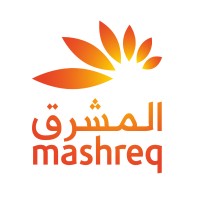Fintech
Interview with Naif AbuSaida, founder of Hakbah

By Puja Sharma
Today
- Consumer savings
- Digital payment app
- financial decisions
Naif AbuSaida – Founder, Hakbah
Hakbah is the cooperative savings platform in Saudi Arabia, offering an integrated solution for the digital management of Jamiya (savings groups). The app supports payments via Mada cards and ensures compliance with Saudi regulations. With features like SMS, email notifications and real-time updates, Hakbah simplifies saving and lending within trusted circles, promoting financial inclusion and ease of use.
In conversation with Naif AbuSaida – Founder of Hakkabah
How are technologies being used to increase savings and address the savings crisis in the Middle East?
The Middle East faces a significant savings gap, with many in need of a financial safety net. However, technology is emerging as a powerful tool to bridge this gap and enable people to save effectively.
While traditional savings practices such as Jameya (collective savings pool) have deep roots in Middle Eastern culture, they often rely on manual processes, which can limit accessibility and transparency. At Hakbah, our goal is to digitize Jameya and provide a seamless and secure experience for a new generation of savers. Our mobile app not only digitizes the process, but also promotes community and accountability, two crucial factors for successful savings habits.
With Hakbah, the days of managing Jameya through complex paperwork, Excel and WhatsApp groups are over. Our intuitive FinTech platform automates contributions, sets personalized goals and can track your progress. This allows people to develop financial discipline and stay motivated on their savings journey.
Smartphones are not just a tool; they are a way of life in the Middle East, with a staggering 88% penetration rate in Saudi Arabia alone. By leveraging mobile technology, financial services and savings become more accessible and convenient.
Our social savings platform is evidence of our commitment to community, leveraging technology to modernize traditional practices, close the savings gap and empower people to take control of their financial well-being.
The future of savings in the Middle East is bright and we are proud to lead this transformative journey. By embracing innovation, we can create a region where everyone has the opportunity to build a secure financial future.
What role does artificial intelligence play in the Gulf’s thriving FinTech ecosystem?
Artificial intelligence is a powerful tool to unlock the Gulf FinTech landscape.
One of the most interesting capabilities of artificial intelligence is its ability to analyze vast data. This allows FinTech companies to understand users’ financial behavior with unprecedented accuracy. This information is invaluable for creating customized financial savings solutions.
At Hakbah, we are leveraging AI to address two critical challenges in the region: the lack of financial education and the burden of personal debt through social savings. Our AI models go beyond simply offering savings tools and empower individuals by providing personalized financial guidance. Businesses can use AI to analyze their income and spending patterns and then suggest a realistic savings plan or debt repayment strategy. This level of personalized support is critical to achieving financial stability and building a secure future.
By leveraging the capabilities of artificial intelligence, Hakbah is committed to promoting financial inclusion, empowering individuals, and shaping a brighter financial savings future for the region.
How is the savings market evolving in Saudi Arabia and what are the changes in the financial behaviors of Saudis and younger generations driving the change?
The Saudi savings market is experiencing an exciting transformation. We see a significant shift in financial behavior, particularly among young Saudis. With a large population under 30 (over 60%), the demand for digital and easy-to-use savings solutions is booming. Traditional methods, used by more than four million people, are no longer the only option. Hakbah, for example, offers group digital savings that traditional methods lack, making it more attractive to younger generations.
Financial education is key to driving change among younger generations when it comes to saving. At Hakbah, 70% of our users fall within the 21-28 age group, demonstrating our success in transforming young people’s saving habits. This is a testament to our effectiveness and potential for further growth.
Furthermore, government initiatives such as the Zood Savings Program and the Financial Sector Development Program are not just a boon; we are perfectly in line with their mission. These programs, in line with Vision 2030, aim to diversify the financial sector, increase household savings and promote economic inclusion across the Kingdom. This alignment provides a solid foundation for our future growth and success.
While we have made significant progress, there is exciting potential for further growth. Traditional, non-digital methods remain our main competitor, and Saudi Arabia’s household savings rate is still the lowest in the G20. However, with the growing demand for digital savings, we are ready to bridge this gap and create a smart savings culture for all Saudis.
– What are the current trends and forecasts for the global Rotating Savings and Credit Association (ROSCA) market?
While Rotating Savings and Credit Associations (ROSCA) and Social Savings (Jameya) are traditional savings methods with a global footprint and a $500 billion market, they are ripe for digital transformation, especially in emerging markets like Saudi Arabia . We expect the industry to continue to digitize as demand for user-centric tools increases.
Here because:
- Large and non-digitalized market: ROSCAs in Saudi Arabia hold a $5 billion market but lack the efficiency and security of digital solutions. Investing in businesses like Hakbah can bridge this gap by providing a safe and easy-to-use platform for these existing savings groups.
- Government support for innovation: The Saudi Arabian government actively promotes innovation in the financial sector and Hakbah aligns perfectly with this vision. This alignment provides a solid foundation for the feasibility and success of the project.
- Tech-savvy young people: Over 60% of Saudis are under 30 and require digital solutions.
This represents a significant opportunity for FinTechs and innovative solutions. Our pilot programs have already shown promising results, with strong demand for the service, reflected in our <400% organic growth over the last 18 months, indicating the potential for substantial growth and profitability.
Why is cooperation between key players in the FinTech sector necessary?
In today’s dynamic financial landscape, FinTech collaboration is essential for success. At Hakbah, we firmly believe that by working with key players (government bodies, investors, innovators and consumers) we can create a more inclusive and impactful financial ecosystem in Saudi Arabia.
Government support: The Saudi Arabian government has promoted innovation through initiatives such as the Regulatory Sandbox. As a participant in this Sandbox, we were able to test and refine solutions in a safe environment, mitigating risks and accelerating market entry.
Strategic partnerships: We are actively seeking partnerships with other FinTech players to enhance our offering. Our recent partnerships with ELM, Simah, Masdr, Riyad Bank, Fransi Bank and Tarabut are a good example. By joining forces, we have simplified onboarding and reduced data processing by 40%, creating a more seamless customer experience.
Involve regulators: Working closely with regulators like SAMA is key to ensuring FinTechs comply with the latest regulations. This collaborative approach promotes trust and stability within the ecosystem, demonstrating our commitment to regulatory compliance.
At Hakbah, collaboration isn’t just a buzzword; it is a fundamental principle. By fostering a collaborative environment, we can unlock the immense potential of fintech to promote financial inclusion, empower individuals and advance the Kingdom’s economic approach.
Previous article
5 FinTechs Promoting the Integrated Payments Experience in Singapore
Fintech
Lloyds and Nationwide invest in Scottish fintech AI Aveni

Lloyds Banking Group and Nationwide have joined an £11m Series A funding round in Scottish artificial intelligence fintech Aveni.
The investment is led by Puma Private Equity with additional participation from Par Equity.
Aveni creates AI products specifically designed to streamline workflows in the financial services industry by analyzing documents and meetings across a range of operational functions, with a focus on financial advisory services and consumer compliance.
The cash injection will help fund the development of a new product, FinLLM, a large-scale language model created specifically for the financial sector in partnership with Lloyds and Nationwide.
Joseph Twigg, CEO of Aveni, explains: “The financial services industry doesn’t need AI models that can quote Shakespeare, it needs AI models that offer transparency, trust and, most importantly, fairness. The way to achieve this is to develop small, highly tuned language models, trained on financial services data, vetted by financial services experts for specific financial services use cases.
“FinLLM’s goal is to set a new standard for the controlled, responsible and ethical adoption of generative AI, outperforming all other generic models in our selected financial services use cases.”
Robin Scher, head of fintech investment at Lloyds Banking Group, says the development programme offers a “massive opportunity” for the financial services industry by streamlining operations and improving customer experience.
“We look forward to supporting Aveni’s growth as we invest in their vision of developing FinLLM together with partners. Our collaboration aims to establish Aveni as a forerunner in AI adoption in the industry, while maintaining a focus on responsible use and customer centricity,” he said.
Fintech
Fairexpay: Risk consultancy White Matter Advisory acquires 90% stake in fintech Fairexpay

Treasury Risk Consulting Firm White Matter Alert On Monday he announced the acquisition of a 90% stake in the fintech startup Fair payment for an undisclosed amount. The acquisition will help White Matter Advisory expand its portfolio in the area of cross-border remittance and fundraising services, a statement said. White Matter Advisory, which operates under the name SaveDesk (White Matter Advisory India Pvt Ltd), is engaged in the treasury risk advisory business. It oversees funds under management (FUM) totaling $8 billion, offering advisory services to a wide range of clients.
Improve your technology skills with high-value skills courses
| IIT Delhi | Data Science and Machine Learning Certificate Program | Visit |
| Indian School of Economics | ISB Product Management | Visit |
| MIT xPRO | MIT Technology Leadership and Innovation | Visit |
White Matter Advisory, based in Bangalore, helps companies navigate the complexities of treasury and risk management.
Fairexpay, authorised by the Reserve Bank of India (RBI) under Cohort 2 of the Liberalised Remittance Scheme (LRS) Regulatory Sandbox, boasts features such as best-in-class exchange rates, 24-hour processing times and full security compliance.
“With this acquisition, White Matter Advisory will leverage Fairexpay’s advanced technology platform and regulatory approvals to enhance its services to its clients,” the release reads.
The integration of Fairexpay’s capabilities should provide White Matter Advisory with a competitive advantage in the cross-border remittance and fundraising market, he added.
The release also states that by integrating Fairexpay’s advanced technology, White Matter Advisory aims to offer seamless and convenient cross-border payment solutions, providing customers with secure options for international money transfers.
Fintech
Rakuten Delays FinTech Business Reorganization to 2025

Rakuten (Japan:4755) has released an update.
Rakuten Group, Inc. and Rakuten Bank, Ltd. announced a delay in the reorganization of Rakuten’s FinTech Business, moving the target date from October 2024 to January 2025. The delay is to allow for a more comprehensive review, taking into account regulatory, shareholder interests and the group’s optimal structure for growth. There are no anticipated changes to Rakuten Bank’s reorganization objectives, structure or listing status outside of the revised timeline.
For more insights on JP:4755 stock, check out TipRanks Stock Analysis Page.
Fintech
White Matter Advisory Acquires 90% Stake in Fintech Startup Fairexpay

You are reading Entrepreneur India, an international franchise of Entrepreneur Media.
White Matter Advisory, which operates under the name SaveDesk in India, has announced that it is acquiring a 90% stake in fintech startup Fairexpay for an undisclosed amount.
This strategic move aims to strengthen White Matter Advisory’s portfolio in cross-border remittance and fundraising services.
By integrating Fairexpay’s advanced technology, White Matter Advisory aims to offer seamless and convenient cross-border payment solutions, providing customers with secure options for international money transfers.
White Matter Advisory, known for its treasury risk advisory services, manages funds under management (FUM) totaling USD 8 billion.
Founded by Bhaskar Saravana, Saurabh Jain, Kranthi Reddy and Piuesh Daga, White Matter Advisory helps companies effectively manage the complexities of treasury and risk management.
The SaveDesk platform offering includes a SaaS-based FX market data platform with real-time feeds for over 100 currencies, bank cost optimization services, customized treasury risk management solutions, and compliance guidance for the Foreign Exchange Management Act (FEMA) and other trade regulations.
Fairexpay is a global aggregation platform offering competitive currency exchange rates from numerous exchange partners worldwide. Catering to both private and corporate customers, Fairexpay provides seamless money transfer solutions for education, travel and immigration, as well as simplifying cross-border payments via API and white-label solutions for businesses. Key features include competitive currency exchange rates, 24-hour processing times, extensive currency coverage of over 30 currencies in more than 200 countries, and secure, RBI-compliant transactions.
-

 DeFi1 year ago
DeFi1 year agoSwitchboard Revolutionizes DeFi with New Oracle Aggregator
-

 News1 year ago
News1 year agoLatest Business News Live Updates Today, July 11, 2024
-

 DeFi1 year ago
DeFi1 year agoIs Zypto Wallet a Reliable Choice for DeFi Users?
-

 DeFi1 year ago
DeFi1 year ago👀 Lido prepares its response to the recovery boom
-

 Fintech1 year ago
Fintech1 year agoFinTech LIVE New York: Mastercard and the Power of Partnership
-

 DeFi1 year ago
DeFi1 year agoEthena downplays danger of letting traders use USDe to back risky bets – DL News
-

 Fintech1 year ago
Fintech1 year ago121 Top Fintech Companies & Startups To Know In 2024
-

 ETFs1 year ago
ETFs1 year agoGold ETFs see first outing after March 2023 at ₹396 cr on profit booking
-

 DeFi1 year ago
DeFi1 year agoTON Network Surpasses $200M TVL, Boosted by Open League and DeFi Growth ⋆ ZyCrypto
-

 Fintech1 year ago
Fintech1 year agoFintech unicorn Zeta launches credit as a UPI-linked service for banks
-

 ETFs1 year ago
ETFs1 year agoLargest US Bank Invests in Spot BTC ETFs While Dimon Remains a Bitcoin Hater ⋆ ZyCrypto
-

 News1 year ago
News1 year agoSalesforce Q1 2025 Earnings Report (CRM)

















